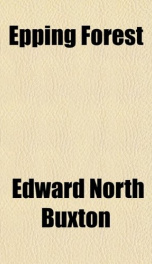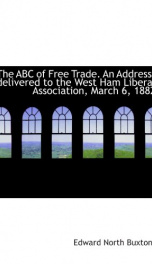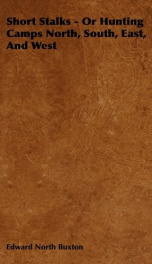epping forest

Purchase of this book includes free trial access to www.million-books.com where you can read more than a million books for free. This is an OCR edition with typos. Excerpt from book: The intersecting lines, which divide them into squares of an inch and a half, are arranged in the direction of the four points of the compass. They are for the combined purpose of readily estimating the distance,each side of a square representing exactly half a mile,and of showing the direction, at a glance, to those who carry a compass, a practice which I strongly recommend. The greater number of visitors to the Forest come by railway. I have, therefore, as a rule, started and terminated each route at stations, generally on the same line of railway. It is obvious that the intelligent reader will be able to combine two or more of the routes to form a more extended expedition. Thus, after taking route G to High Beach, he can follow route K to Loughton, or route H to Epping. The small figures on the maps show the height in feet above high-water mark. The routes described are indicated by the red lines. Hard gravelled roads are coloured yellow. The small-scale index map opposite page 22 shows the position of all the railway stations relatively to the Forest. It also shows, for the benefit of those who drive, the chief roads of approach from London and Stratford. It should be borne in mind that the days when east wind prevails are the best for selecting those routes that command distant views. Winds from the west or south come laden with London smoke which obliterates them. ROUTE A LEYTONSTONE TO WANSTEAD PARK AND FOREST GATE 5j miles On leaving Leytonstone Station, cross the High Street, by the Red Lion Inn, and follow Harvey Road at right angles to it. This leads to the Avenues in 300 yards. These were planted 150years ago by Sir Josiah Child, and are now, unfortunately, in a very decaying condition. They are but the remnant of a large number which radi...
Info about the book
Author:
Series:
Unknown
ASIN:
124132767X
Rating:
4/5 (4)Your rating:
0/5
Languge:
English
Users who have this book
Users who want this book
What readers are saying
What do you think? Write your own comment on this book!
write a commentif you like epping forest try:
Do you want to read a book that interests you? It’s EASY!
Create an account and send a request for reading to other users on the Webpage of the book!




